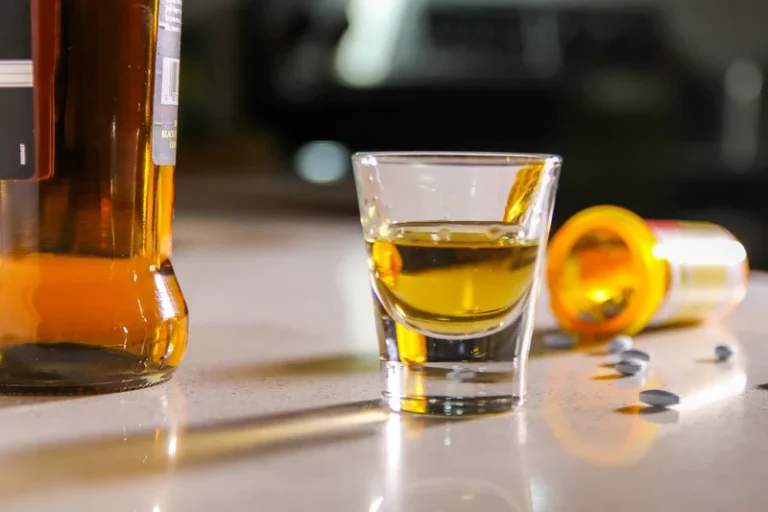
This complicates understanding of alcohol-induced changes, especially because those changes are dependent upon the amount of alcohol consumed. Most studies of individuals with AUD and AUD models involve binge drinking and even extreme binge drinking. Binge drinking is defined as consuming enough alcohol to become intoxicated, which is defined by a blood ethanol concentration of 80 mg/dL, or approximately 4–5 drinks within 2 hours. Extreme binge drinking, or high-intensity drinking, is defined as consuming at least twice as much (i.e., 10–15+ drinks) per occasion.
Modulation of Innate Immunity by Alcohol
When you drink too much alcohol, it can throw off the balance of good and bad bacteria in your gut. Your gut microbiome is a hotbed of bacteria that help keep your digestive system happy and healthy. The trillions of microbes in your colon and large and small intestines are critical to proper digestion. In reality, there’s no evidence that drinking beer (or your alcoholic beverages of choice) actually contributes to belly fat. If alcohol continues to accumulate in your system, it can destroy cells and, eventually, damage your organs.
Mental health
Future studies aimed at uncovering the mechanisms underlying dose-dependent modulation of immune function should also investigate changes in gene expression patterns, as well as factors that regulate gene expression including microRNAs and epigenetic changes within specific immune https://ecosoberhouse.com/ cell populations. Additionally, the role of alcohol-induced changes in the microbiome on immunity should be studied. Recent studies have shown that the microbiome modulates immunity in the gut, and in turn, immunity modulates the microbiome in the gut (Belkaid and Hand 2014).

Drinking impairs immune cells in key organs
For example, one study found that women who consumed 330 mL of beer for 30 days exhibited a significant increase in leukocytes, mature CD3+ T-cells, neutrophils, and basophils. In contrast, men who consumed a similarly moderate amount of beer for the same period exhibited a significant increase in basophils alone. The effects of alcohol on both cell-mediated and humoral immunity have been well-documented since the early 1960s, wherein researchers found that alcohol abuse significantly reduced both CD4 and CD8 T-cell counts. In the 1990s, researchers confirmed this finding and added that heavy male drinkers who consumed between 90 to 249 alcoholic drinks per month had significantly lower B-cell counts as compared to both moderate male drinkers who consumed between 30 and 89 drinks each month and light drinkers who consumed less than ten drinks each month. With such conditions, the body’s immune system attacks not only invaders but also its own cells. So if the liver’s immune system is unnecessarily activated due to heavy drinking, it can lead to liver disease.
- Antibodies detect and get rid of substances that are harmful to your body, including bacteria and viruses.
- Alcohol has been flying off the shelves as people try to combat boredom during lockdown, with some reports estimating that alcoholic beverage sales surged by 55 percent toward the end of March.
- The innate immune response to a pathogen is followed by an adaptive immune response that is activated only after the body is exposed to the pathogen for the first time and which is specific to that one pathogen.
- Healthy habits, such as being active, eating a balanced diet, and getting enough sleep, can keep your immune system strong.
What Are the Effects of Alcohol on the Body?
These articles detail how alcohol affects the immune system and how researchers are harnessing this knowledge to help prevent and treat alcohol-related harm. Chronic alcohol use and binge drinking damage the heart muscle, making it harder for the heart to pump blood effectively. Alcohol can also contribute to arrhythmias (irregular heartbeats) and hypertension (high blood pressure), increasing the risk of heart attack, stroke, and heart failure. — Some research suggests no amount of alcohol is good for you, while other studies say moderate drinking may actually boost immune function more than teetotalling. 5IgA is an antibody that plays a critical role in immune responses in the mucous membranes.

- Several studies have demonstrated the dose-dependent effect that alcohol has on preventing both monocytes and macrophages from binding to the bacterial cell wall component lipopolysaccharide (LPS).
- This condition occurs when bacteria enter the chest cavity’s pleural space, typically due to pneumonia or a post-surgery infection.
- Thiamine, also known as vitamin B1, contributes to the activation of T cells, suppresses oxidative stress-induced NFκB activation in macrophages, and serves as an anti-inflammatory factor (Manzetti, Zhang et al. 2014).
- Alcohol-induced changes in tight junctions cause increased intestinal leaks that lead to translocation of bacteria-derived products such as lipopolysaccharide (LPS).
In fact, alcohol use has been shown to increase the susceptibility of drinkers to both bacterial and viral infections, as well as advance the progression of several chronic viral infections, including human immunodeficiency virus (HIV) and hepatitis C. Alcohol has a broad range of effects on the structural, cellular, and humoral components of the immune system. Acute and chronic alcohol exposure can interfere with various aspects of the adaptive immune response, including the antigen presentation required to activate T- and B-cells, the activity of CD4+ and CD8+ T-cells, and the activity of B-cells. For example, alcohol suppresses tissue recruitment of PMNs during infection and inflammation, which can lead to increased susceptibility to bacterial infections (particularly pneumonia), decreased removal of invading bacteria (i.e., bacterial clearance), and increased mortality from pneumonia (Zhang et al. 2002). Thus, alcohol interferes with various processes necessary to deliver neutrophils to the site of an infection, such as expression of a molecule called CD18 on PMNs in response to inflammatory stimuli and PMN “hyperadherence” to endothelial cells following appropriate stimulation (MacGregor et al. 1988).
Alcohol distracts the body from other functions
It then focuses on emerging studies on how alcohol impacts neuroimmune signals across microglia, other glia, and neurons through epigenetic changes in gene transcription that alter synapses, neurocircuitry, and neuronal networks that contribute to the development of AUD. Both preclinical and postmortem human brain studies will be presented, revealing new hypothetical mechanisms on development of AUD. There is a large number of neuroimmune genes, including pro-inflammatory cytokines, chemokines, complement, proteases, and receptors. A detailed review of all these signals in the brain is beyond the scope of this article. This review focuses on HMGB1 and TLR pathways that have been linked to alcohol drinking and AUD and attempts to integrate human and preclinical studies.

The severity of a person’s withdrawal symptoms may get worse each time they stop drinking, and can cause symptoms such as tremors, agitation and convulsions (seizures). After drinking 8 to 9 units of alcohol, your reaction times will be does alcohol weaken your immune system much slower, your speech will begin to slur and your vision will begin to lose focus. Alcohol is a powerful chemical that can have a wide range of adverse effects on almost every part of your body, including your brain, bones and heart.

Cancer risk
These events depend on the activation of the nuclear factor kappa B (NFκB) heterodimer p50–p65 and its translocation to the nucleus leading to the expression and production of pro-inflammatory cytokines such as interleukin (IL)-1β, IL-6, IL-12, and tumor necrosis factor (TNF)-α (Hoffmann, Natoli et al. 2006, Janeway 2008). Often, investigators stimulate with LPS after pre-exposure to ethanol to mimic inflammation observed in trauma patients with high blood alcohol levels and explore the alterations in immunity that lead to frequent subsequent infections among this group. It is also critical to take into consideration that the effects of ethanol on immune function in vivo could involve the actions of its primary metabolite, acetaldehyde. Therefore, more studies looking at the effects of ethanol metabolites in vivo are needed. Acetaldehyde has also been shown to affect NFκB-induced cytokine production in various liver cells.
